Twenty-first century Portland is home to a thriving community of acupuncturists, herbalists, bodyworkers, chiropractors and naturopaths. Portland is known as a hub for education and innovation in “alternative medicine” – a term that groups together diverse disciplines, each with its own theory and methods of practice.
You may be surprised to learn that the history of Chinese medicine and acupuncture in Portland is much older than the present day “alternative medicine” revival. In fact, Chinese medicine and acupuncture were brought to Portland, Oregon and the western United States in the 1800s. Thousands of Chinese immigrants came to the American West as laborers, working in mines and building railroads. Chinese medicine and acupuncture are an important part of Chinese American cultural heritage in Portland, Oregon and the West.
“Doc” Hay & Lung On
One doctor in particular is credited as the father of Chinese medicine in Oregon, Ing Hay. Ing Hay settled in the Oregon town of John Day in 1882 after leaving his native China. He was better known as “Doc” Hay.
Doc Hay was a pulsologist, or rather a doctor who could diagnose ailments by feeling a patient’s pulse. He impressed onlookers and patients by guessing what was wrong with them before they even had a chance to tell him.
He was good friends with another Chinese immigrant, Lung On. Lung On was one of few Chinese men who truly assimilated into wild western culture in Oregon, due mostly to his English fluency and pronunciation. Lung On (called Leon by his American friends) was well-liked and introduced Doc Hay to his fellow coworkers and pals. Together, they became business partners in the Kam Wah Chung Company, meaning “Golden Flower of Prosperity” in Chinese. The Kam Wah Chung Company was a grocery store with all kinds of goods popular with Chinese migrant workers. Doc Hays provided much needed medical care, and Lung On turned the Kam Way Chung store into a well-rounded social gathering space.
Oregon’s “Blood-Poisoning” Doctor
In the 1880s, many people sickened and died after suffering minor cuts and scrapes. We now know these were septic infections, but it was referred to as “blood poisoning” at the time. Western medicine had only primitive understanding of germ theory, and antibiotics had not been invented. Doc Hay used herbal medicine that was effective in treating infections and many other illnesses. Thanks to both the efficacy of his herbs and to Lung On’s fluency in English, Ing Hay’s medical reputation spread to the Caucasian community. The pragmatic ranchers and farmers of eastern Oregon were more than willing to adopt Chinese medicine if it saved lives.
His herbal mixtures were so effective that he escaped prosecution for operating without a U.S. medical license because no one in the local court system dared lock up the man responsible for healing them and their family members. In fact, when the devastating Spanish Flu ravaged the world, not a single person treated by Doc Hay died. People would come to him from all over the country.
Doc’s Legacy & the Kam Wah Chung Museum
Sadly, Lung On became very sick and nothing Doc tried helped to heal him. He succumbed in 1940 to his illness, and from that point on, Doc was a very different man. He continued to treat patients, but he was not the happy and social man they had known him as before the death of his best friend.
When Doc died in 1952, their clinic was deeded to the town of John Day and boarded up. It wasn’t until 1967 that the city realized they should do something with the property, at which point they opened the doors to discover a time capsule. Doc had left everything in perfect order, including a box of uncashed checks from patients totaling approximately $23,000 in today’s currency. He apparently didn’t cash them if he thought the patient needed the money more than Doc did. When the city explored the site in 1967, they found over 500 herbs intact that were used in Doc’s treatments, many of which we still use and administer today.
In 1973, The Kam Wah Chung Company building was added to the National Register of Historic Places. It opened as a museum shortly thereafter in 1975. The Kam Wah Chung Company site was named a National Historic Landmark in 2005.
Portland’s First Chinese Herbalist: C. Leo Gee Wo
While Doc Hay and Lung On were practicing in eastern Oregon, the frontier city of Portland gained its first Chinese medicine doctor, C. Leo Gee Wo. Dr. Wo was married to a Caucasian woman from Iowa, Sadie Starbuck. Sometime around 1900 they arrived as a family in Portland. Dr. Wo established the C. Gee Wo Chinese Medicine Company in downtown Portland at 310 SW Alder. His Chinese medicine practice was an immediate success.
Unusually, Dr. Wo purchased and owned a home in the Albina district of NE Portland. This is notable because at the time Chinese suffered discrimination. Most lived in a Chinese ghetto and were not allowed to own property in Portland or the State of Oregon. Dr. Wo was probably allowed to purchase the home because of his Caucasian wife. They later built a larger home next to his original home, incorporating Chinese elements into the Craftsman design.
Inner Works Acupuncture & the Portland Community
The practice of Chinese herbal medicine and acupuncture began to grow in the U.S. in the 1970s when China reopened trade relations.
Today, Chinese herbs are widely used by licensed acupuncturists and practitioners of Chinese medicine for pain relief, preventive care, and treatment of many chronic and acute conditions. We strongly recommend consulting a board-certified herbalist and licensed acupuncturist before taking Chinese herbs. Prescribing Chinese herbs is a complex medical art. Please avoid over-the-counter herbal supplements unless they are of guaranteed high quality and are prescribed by an expert.
Inner Works Acupuncture was established by Dr. Elizabeth Zenger for the purpose of sharing the gifts of ancient Chinese herbal medicine, Five Element acupuncture, and Zero Balancing bodywork. The methods combine to form a holistic healing and treatment approach to help with a full spectrum of health problems, ranging from chronic illness such as allergies and eczema to event-specific trauma or injury. To learn more or schedule an appointment, contact us today at (503) 227-2127.

